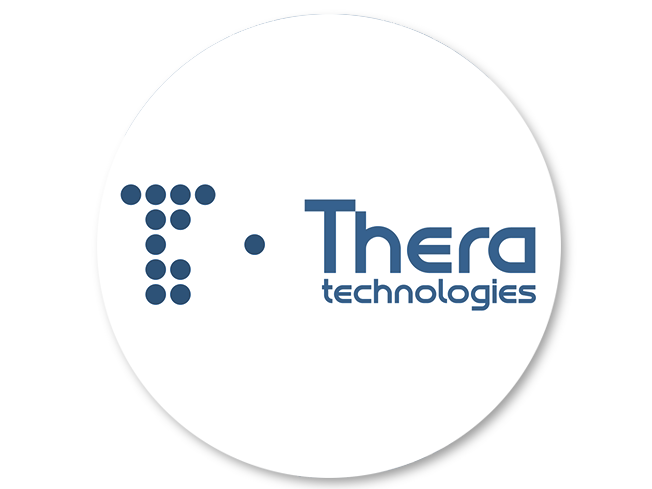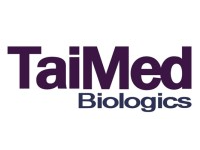Drug information
Not provided
Ibalizumab
Trogarzo
Biotherapeutic
Ibalizumab (ibalizumab-uiyk; TMB-355; TNX-355) is a first-in-class humanised IgG4 monoclonal antibody indicated for use in heavily treatment experienced individuals with multidrug-resistant HIV-1 infection. Ibalizumab functions as a post-attachment inhibitor, specifically disrupting HIV-1 viral entry into CD4 cells through targeting of the gp120-CD4 complex. It binds to an epitope within domain 2 of the CD4 receptor, preventing the conformational changes necessary for co-receptor binding and subsequent fusion. Notably, Ibalizumab's binding site is distinct from both the gp120 and MHC-II binding regions, ensuring that it does not disrupt MHC-II mediated immune function. Additionally, Ibalizumab also acts to directly inhibit HIV-1 induced syncytium formation, further limiting viral spread.
Ibalizumab-uiyk (TROGARZO) 300mg/2mL (delivers 1.33ml) intravenous injection was approved for the treatment of heavily treated, multi-drug resistant HIV-1 infection in combination with other antiretroviral therapies. TROGARZO is currently approved only in the United States of America. Ibalizumab-uiyk (TROGARZO) was initially approved in the European Union, but later it was withdrawn from the EU market by the Marketing Authorization Holder for commercial reasons.
Ibalizumab-uiyk (TROGARZO) 300 mg/2 mL vial has received the Orphan Drug designation from the US FDA.
Therapeutic area(s)
- HIV
- Treatment
Administration route
Subcutaneous, Intramuscular, Intravenous
Associated long-acting platforms
Recombinant humanized monoclonal antibody
Use of drug
- Administered by a nurse
- Administered by a specialty health worker
Not provided
Dosage
Not provided
Not provided
Not provided
Not provided
Not provided
Not provided
Associated technologies
Not provided
Comment & Information
Developer(s)

Ibalizumab was initially developed by Biogen. In the late 1990s, Tanox acquired the exclusive global rights. Subsequently, Genentech acquired Tanox inheriting the ibalizumab license and later partnering with TaiMed Biologics. In 2012, TaiMed contracted WuXi PharmaTech to manufacture ibalizumab. Finally, in 2016, TaiMed established a collaboration with Theratechnologies for commercialization.

TaiMed Biologics is a highly specialized biopharmaceutical company headquartered in Taiwan that focuses on the development and commercialization of HIV therapeutics. TaiMed was originally founded in Sep 2007 after securing an exclusive license agreement with Genentech for the anti-cd4 antibody Ibalizumab (TMB-355). In March 2018, TMB-355 was approved by the U.S FDA under the brand name Trogarzo®.
Drug structure
Scale-up and manufacturing prospects
Ibalizumab is a humanised IgG4, κ monoclonal antibody produced in a NS0 cell line. The successful scale-up of therapeutic monoclonal antibody (mAb) products involves achieving favourable pharmacokinetic profiles, maintaining formulation stability and ensuring consistency of the overall product quality. However, industrial bioprocessing steps can potentially introduce additional complexities regarding mAb solution viscosity and aggregation propensity.
Industrial bioreactor vessel with a production volume capacity of between 5-25kL. Continuous disc stack centrifuges for bioreactor harvesting with subsequent membrane and depth filtration for supernatant clarification. Recombinant protein-A chromatography or other suitable affinity capture apparatus followed by two chromatographic polishing steps such as cation- and anion-exchange. Ultrafiltration membrane system to concentrate and formulate the final product.
Store in a refrigerator at 2˚C to 8˚C (36˚F to 46˚F). Protect from light until use. Do not freeze. Ibalizumab is supplied in a single 2 mL (200mg/1.33 mL) glass vial with a rubber stopper and aluminum flip-off seal. MAbs are highly dependent on their structural, chemical and conformational stability for biological activity. Chemical degradation of mAbs during manufacture can lead to the generation of product variants and complex impurity profiles. Additionally prior to packaging, the final product requires close monitoring for the presence of residual contaminants such as endotoxins.
Formulation characterisation steps for therapeutic mAb products include (but are not limited to): (1) Identification of post-translational modifications using ion-exchange chromatography and capillary isoelectric focusing. (2) Measurement of concentration dependent aggregation rates via thermal differential scanning calorimetry, sub-visible particle quantitation and size-exclusion chromatography. (3) Antibody clipping and fragmentation detection by capillary electrophoresis.
Excipients
Not provided
Not provided
Not provided
Delivery device(s)
No delivery device
Use of ibalizumab for the treatment of HIV-2 infection
There are major differences in the susceptibility of human immunodeficiency virus type 1 (HIV-1) and human immunodeficiency virus type 2 (HIV-2) to currently available drugs, and novel approaches for the treatment of HIV-2 are needed. The present application relates to a method for treating infection by several HIV-2 strains/isolates, including multidrug resistant (MDR) HIV-2 strains, comprising administering to a subject in need thereof an effective amount of ibalizumab, or of an antibody or antigen-binding fragment thereof that binds the same antigenic epitope, or an overlapping epitope, as ibalizumab.
WO21062546
Use
Taimed biologics inc.
Not provided
October 1, 2040
Not provided
Ibalizumab and homologues ( anti-CD4 antibodies blocking HIV-induced syncytia)
Anti-CD4 antibody homologs, DNA sequences and recombinant DNA molecules encoding them, prophylactic, immunotherapeutic and diagnostic compositions comprising those antibody homologs, and methods for preventing or treating diseases in mammals, including humans, caused by infective agents whose primary targets are CD4+ lymphocytes. Such diseases include acquired immune deficiency syndrome ('AIDS'), AIDS related complex, and human immunodeficiency virus infection.
WO1992009305
Compound patent broad claims and CDR
Biogen
Not provided
November 27, 2011
Expired
Publications
Chahine EB, Durham SH. Ibalizumab: The First Monoclonal Antibody for the Treatment of HIV-1 Infection. Annals of Pharmacotherapy. 2021;55(2):230-239. DOI:10.1177/1060028020942218
Objective:
To review the efficacy and safety of ibalizumab (IBA) in the treatment of HIV-1 infection.
Data Sources:
A literature search was performed using PubMed and Google Scholar (2010 to mid-June 2020) with the search terms TMB-355, TNX-355, and ibalizumab. Other resources included abstracts presented at recent conferences and the manufacturer’s website and prescribing information.
Study Selection and Data Extraction:
All relevant English-language articles of studies assessing the efficacy and safety of IBA were included.
Data Synthesis:
IBA is a monoclonal antibody that blocks HIV-1 from infecting CD4+ T cells. IBA is approved by the Food and Drug Administration, in combination with other antiretrovirals (ARVs), for the treatment of HIV-1 infection in heavily treatment-experienced adults with multidrug-resistant (MDR) HIV-1 infection failing their current ARVs. IBA demonstrated significant and sustained antiviral activity in patients with MDR HIV-1 infection who had advanced disease and limited treatment options. It carries a warning regarding the development of immune reconstitution inflammatory syndrome. Common adverse reactions include diarrhea, dizziness, nausea, and rash.
Relevance to Patient Care and Clinical Practice:
IBA represents an attractive option for treatment-experienced adults with advanced HIV-1 infection who are no longer able to achieve viral suppression on oral ARV therapy alone and who are able to adhere to an infusion therapy every 2 weeks. As with other biologics, there is a potential for the development of antibodies to IBA that can compromise its efficacy and safety.
Conclusion:
IBA provides a needed treatment option to achieve and maintain viral suppression in heavily treatment-experienced adults with MDR HIV-1 infection.
Bettiker, Robert L.a; Koren, David E.d; Jacobson, Jeffrey M.a,b,c. Ibalizumab. Current Opinion in HIV and AIDS 13(4):p 354-358, July 2018. DOI: 10.1097/COH.0000000000000473
Purpose of review
Antiretroviral options for patients infected with multiclass resistant HIV-1 warrant the development of new agents with unique mechanisms of action and modes of delivery. Here we review one such agent, ibalizumab, a parenteral CD4 postattachment inhibitor that has demonstrated efficacy as part of combination antiretroviral therapy in the treatment of HIV-1.
Recent findings
In a phase III clinical trial in HIV-infected participants with multiclass antiretroviral drug resistance, the intravenous administration of ibalizumab led to declines in plasma HIV-1 RNA more than 0.5 log in 83% of participants at 1 week. An optimized background antiretroviral regimen was then added, and plasma HIV-1 RNA became less than 50 copies/ml in 43% of participants at 24 weeks. Adverse effects of ibalizumab were uncommon and generally low grade. Ibalizumab was approved by the US Food and Drug Administration on March 16, 2018, under the trade name Trogarzo.
Summary
Ibalizumab has demonstrated both safety and efficacy in the treatment of HIV-1 infection. Its primary use will be in the setting of multidrug resistant virus as part of combination antiretroviral therapy. Further enhancements of ibalizumab to prolong its clearance and broaden its activity are in development.
Additional documents
No documents were uploaded
Collaborate for development
Consider on a case by case basis, collaborating on developing long acting products with potential significant public health impact, especially for low- and middle-income countries (LMICs), utilising the referred to long-acting technology
Share technical information for match-making assessment
Provide necessary technical information to a potential partner, under confidentiality agreement, to enable preliminary assessment of whether specific medicines of public health importance in LMICs might be compatible with the referred to long-acting technology to achieve a public health benefit
Work with MPP to expand access in LMICs
In the event that a product using the referred to long-acting technology is successfully developed, the technology IP holder(s) will work with the Medicines Patent Pool towards putting in place the most appropriate strategy for timely and affordable access in low and middle-income countries, including through licensing
